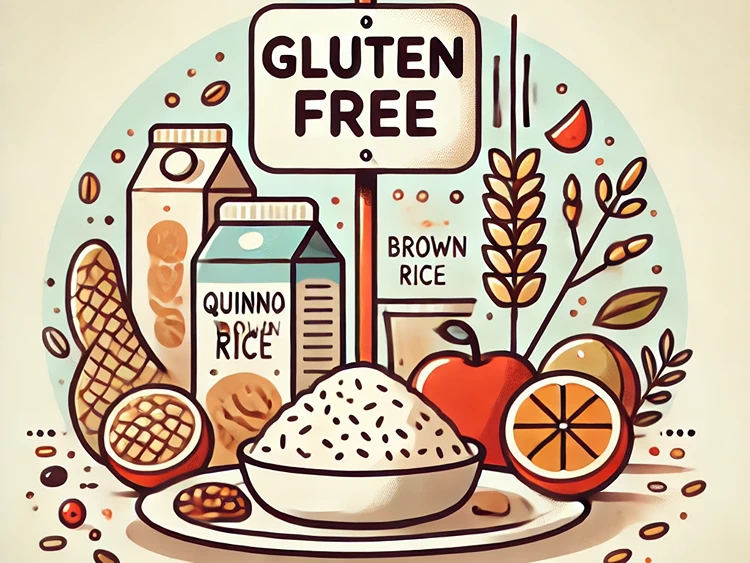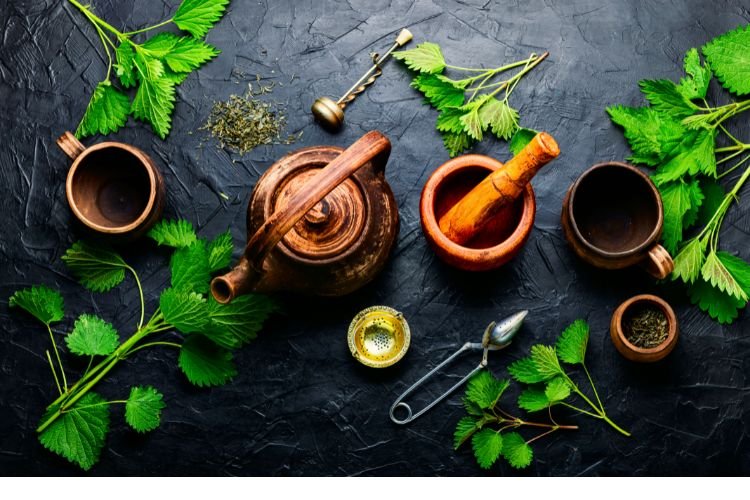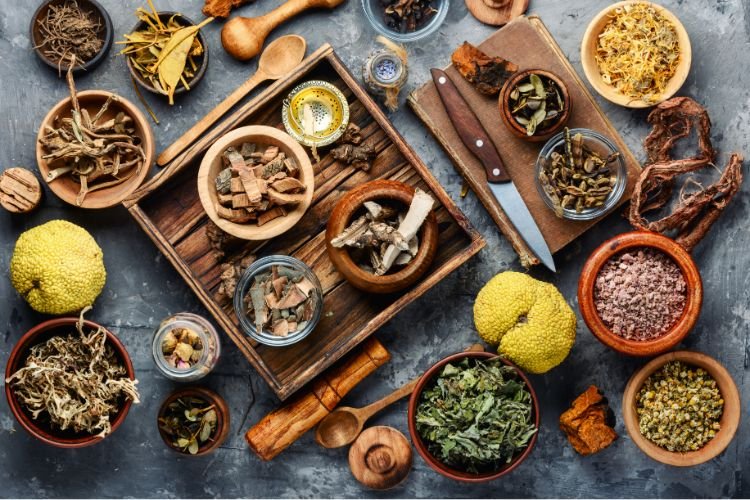
The Power of Aromatherapy for Stress Relief and Relaxation
The Power of Aromatherapy for Stress Relief has been recognized for centuries as an effective, natural remedy. Whether you’re dealing with a hectic work schedule or just need a moment to unwind, the soothing effects of aromatherapy can significantly improve your mental and emotional well-being. In this article, we’ll explore how aromatherapy works, the best essential oils for stress relief, and how to incorporate aromatherapy into your daily routine for optimal relaxation.
What Is Aromatherapy and How Does It Work?
Aromatherapy is a holistic healing practice that uses natural plant extracts, commonly known as essential oils, to improve physical and emotional health. These essential oils are extracted from various parts of plants, including flowers, leaves, bark, and roots. When inhaled or applied to the skin, these oils interact with the body’s limbic system, which is responsible for emotions, memories, and arousal. This interaction can lead to reduced stress levels, improved mood, and a sense of calm.
How Essential Oils Affect the Brain
When you inhale the aroma of an essential oil, the scent molecules travel through the nasal passages to the olfactory receptors, which are connected to the limbic system in the brain. The limbic system is directly linked to parts of the brain that control heart rate, blood pressure, breathing, memory, stress levels, and hormone balance. This connection explains why certain scents can trigger powerful emotional responses and influence physical states such as relaxation or alertness.
Helpful Hint:
Helpful Hint:
If you’re new to aromatherapy, start with lavender essential oil. It’s known for its calming effects and is a great choice for beginners.
The Science Behind Aromatherapy
While aromatherapy has been used for thousands of years, modern science is beginning to catch up with traditional knowledge. Research has shown that certain essential oils can activate specific areas of the brain and influence the release of neurotransmitters such as serotonin and dopamine, which play key roles in mood regulation and stress relief. For example, studies have found that lavender oil can reduce anxiety and improve sleep quality, while bergamot oil can lower cortisol levels and improve mood.
Stats:
A study published in the International Journal of Neuropsychopharmacology found that inhaling lavender oil can significantly reduce anxiety and increase feelings of calmness in individuals with generalized anxiety disorder.
Best Essential Oils for Stress Relief

Not all essential oils are created equal when it comes to stress relief. Some oils have properties that are particularly effective in promoting relaxation and calming the mind. Below are some of the best essential oils to use for stress relief and relaxation:
Lavender Essential Oil
Lavender is perhaps the most well-known essential oil for relaxation. Its gentle floral scent is known to ease anxiety, reduce tension, and promote restful sleep. Lavender oil can be used in a diffuser, added to a warm bath, or applied topically to pulse points for a calming effect.
Bergamot Essential Oil
Bergamot oil has a refreshing citrus scent that can lift your spirits and reduce stress. It’s often used in aromatherapy to treat depression and anxiety, thanks to its mood-enhancing properties. You can diffuse bergamot oil in your home or add a few drops to your favorite carrier oil for a soothing massage.
Chamomile Essential Oil
Chamomile oil is another excellent option for stress relief. Known for its gentle, soothing scent, chamomile is often used to reduce anxiety and promote relaxation. It’s particularly beneficial when used before bedtime to help you unwind and prepare for a good night’s sleep.
Ylang-Ylang Essential Oil
Ylang-ylang oil has a sweet, floral scent that can help reduce stress and create a sense of calm. It’s often used in aromatherapy to balance emotions, lower blood pressure, and reduce heart rate, making it an ideal choice for relaxation. Ylang-ylang can be diffused, applied topically, or added to bath water.
Common Essential Oils for Stress Relief and Their Benefits
| Essential Oil | Primary Benefits | Best Uses |
|---|---|---|
| Lavender | Reduces anxiety, promotes relaxation | Diffusing, baths, topical application |
| Bergamot | Elevates mood, lowers cortisol levels | Diffusing, massage |
| Chamomile | Calms nerves, improves sleep | Baths, diffusing, topical application |
| Ylang-Ylang | Balances emotions, reduces blood pressure | Diffusing, baths, topical application |
How to Incorporate Aromatherapy Into Your Daily Routine

Incorporating aromatherapy into your daily routine doesn’t have to be complicated. There are simple and effective ways to use essential oils for stress relief, whether you’re at home, at work, or on the go. Here are some practical tips to help you get started:
Using a Diffuser
One of the easiest ways to enjoy the benefits of aromatherapy is by using an essential oil diffuser. A diffuser disperses the essential oil into the air, allowing you to inhale the therapeutic scent. Place a diffuser in your bedroom, living room, or office to create a calming environment throughout the day.
Aromatherapy Massage
Combining essential oils with massage is a powerful way to relieve stress and tension. Mix a few drops of your favorite essential oil with a carrier oil, such as coconut or jojoba oil, and use it to massage your neck, shoulders, and back. This method allows the oils to absorb into your skin while you enjoy the physical benefits of massage.
Aromatherapy Bath
Adding essential oils to your bath can turn a simple soak into a luxurious, stress-relieving experience. Simply add a few drops of your preferred oil to warm bath water and let the scent envelop you as you relax. Lavender, chamomile, and ylang-ylang are particularly soothing options for a nighttime bath.
Aromatherapy on the Go
For stress relief on the go, consider carrying a small bottle of essential oil with you. You can apply a drop or two to your wrists, temples, or neck whenever you need a quick dose of relaxation. There are also portable diffusers and aromatherapy jewelry available that allow you to enjoy the benefits of essential oils no matter where you are.
Helpful Hint:
If you’re using essential oils on your skin, always dilute them with a carrier oil to avoid irritation. A common ratio is 3-5 drops of essential oil per tablespoon of carrier oil.
Precautions When Using Aromatherapy
While aromatherapy is generally safe, it’s important to use essential oils with caution, especially if you have sensitive skin or respiratory issues. Always do a patch test before applying an essential oil topically, and avoid using certain oils if you are pregnant, nursing, or have specific health conditions.
Possible Side Effects
Although rare, some people may experience allergic reactions or skin irritation from essential oils. If you notice any redness, itching, or discomfort after using an essential oil, discontinue use immediately and consult a healthcare professional.
Essential Oils to Avoid During Pregnancy
Certain essential oils should be avoided during pregnancy, as they may pose risks to both the mother and the baby. Oils such as rosemary, sage, and thyme are known to stimulate contractions and should be avoided. Always consult with a healthcare provider before using essential oils during pregnancy.
Safe Usage Tips
To ensure safe usage of essential oils, follow these tips:
- Always dilute essential oils before applying them to the skin.
- Use high-quality, pure essential oils from reputable sources.
- Store essential oils in a cool, dark place to preserve their potency.
- Keep essential oils out of reach of children and pets.
Helpful Hint:
When using essential oils in a diffuser, start with a small amount and gradually increase the concentration to find the right balance for your needs.
Weighing the Benefits and Drawbacks of Aromatherapy
Pros
- Natural and holistic approach to stress relief without synthetic chemicals.
- Can be easily incorporated into daily routines through various methods like diffusing, massage, and baths.
- Offers a wide range of essential oils to suit individual preferences and needs.
Cons
- Potential for skin irritation or allergic reactions if not properly diluted.
- Some essential oils may be contraindicated for certain health conditions or during pregnancy.
- The effectiveness of aromatherapy can vary between individuals, and some may find it less impactful.
FAQs
Wrapping Up
Aromatherapy offers a simple, natural way to reduce stress and promote relaxation in your daily life. By using essential oils like lavender, chamomile, and bergamot, you can create a calming environment that enhances your well-being. Whether through diffusing, massage, or baths, the power of aromatherapy can be easily integrated into your routine. Remember to choose high-quality oils, use them safely, and find the combinations that work best for you. As you explore the benefits of aromatherapy, you’ll discover how it can help you achieve greater peace and balance in your life.
Additional Resources
- National Institutes of Health (NIH) – The NIH offers comprehensive research and information on the health benefits of aromatherapy and essential oils.
- National Association for Holistic Aromatherapy (NAHA) – An excellent resource for learning more about aromatherapy practices, safety guidelines, and education.
- Mayo Clinic – Find medically reviewed articles and research on how aromatherapy can aid in stress management and relaxation.
- The Essence Institute – A trusted source for educational courses and certifications in aromatherapy and holistic health practices.
- WebMD – Offers user-friendly guides and tips on how to use essential oils safely for stress relief and relaxation.






